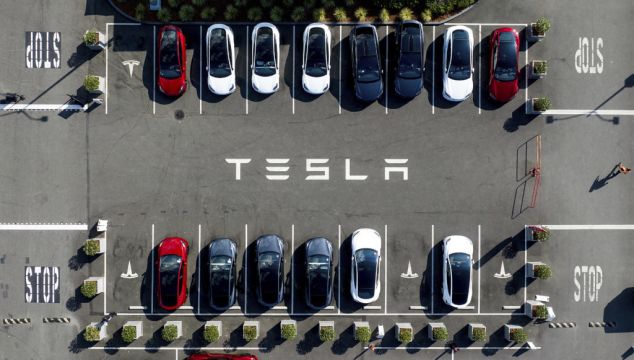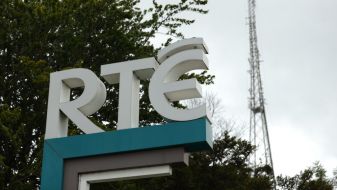Tesla has cancelled the long-promised inexpensive car that investors have been counting on to drive its growth into a mass-market carmaker, according to three sources familiar with the matter and company messages seen by Reuters.
The carmaker will continue developing self-driving robo-taxis on the same small-vehicle platform, the sources said.
The decision represents an abandonment of a longstanding goal that Tesla chief Elon Musk has often characterised as its primary mission: affordable electric cars for the masses. His first “master plan” for the company in 2006 called for manufacturing luxury models first, then using the profits to finance a “low-cost family car.”
Tesla shares were down by 6 per cent in late morning trading after the report.
Musk has since repeatedly promised such a vehicle to investors and consumers. As recently as January, Musk told investors that Tesla planned to start production of the affordable model at its Texas factory in the second half of 2025.
Tesla’s cheapest current model, the Model 3 saloon, retails for about $39,000 (€36,000) in the United States. The now-defunct entry-level vehicle, sometimes described in media reports as the Model 2, was expected to start at about $25,000 (€23,000).
Tesla did not respond to requests for comment.
The stark reversal comes as Tesla faces fierce competition globally from Chinese electric-vehicle makers flooding the market with cars priced as low as $10,000. The plan for driverless robotaxis, which could take longer to deliver, presents a stiffer engineering challenge and more regulatory risk.
Two sources said they learned of Tesla's decision to scrap the Model 2 in a meeting attended by scores of employees, with one of them saying the gathering happened in late February.
“Elon’s directive is to go all in on robotaxi,” that person said.
The third source confirmed the cancellation and said new plans call for robotaxis to be produced, but in much lower volumes than had been projected for the Model 2.
Several company messages about the decision included one on March 1st from an unnamed programme manager for the affordable car discussing the project’s demise with engineering staff and advising them to hold off on telling suppliers “about program cancellation.”
A fourth person with knowledge of Tesla’s plans expressed optimism about the decision to pivot away from the cheap-car strategy in favour of robotaxis, a segment Musk has envisioned as the future of mobility. The source cautioned that Tesla’s product plans could change again based on economic conditions.
Squeezing profits from entry-level vehicles is a challenge for any carmaker. But Tesla’s delay in pursuing the car Musk once called his dream made it much tougher because it now faces far more competition in that price range.
While Tesla spent years developing its highly experimental Cybertruck, a pricey electric pickup, Chinese carmakers have raced ahead on affordable EVs, grabbing market share, gaining economies of scale and offering consumers bargain prices that Western carmakers are struggling to match.
As Chinese EVs surged to challenge Tesla’s dominance, Musk was tending to his sprawling empire, which includes rocket-maker SpaceX, brain-chip developer Neuralink, and social media giant X, which Musk acquired in 2022. Formerly called Twitter, the platform has foundered under Musk’s volatile management, shedding most of its value as the company has lost revenue and advertisers.
Plans for the affordable Tesla have been seen as key to delivering on Musk’s stratospheric ambitions for sales growth. Musk said in 2020 that Tesla aspired by 2030 to sell 20 million vehicles – twice as many as the world’s largest automaker, Toyota, sells today. With the death of the Model 2, it’s unclear how he’ll get there.
Expectations for a $25,000 vehicle have underpinned Wall Street analysts’ more modest, but still ambitious, forecasts for Tesla sales. Those forecasts, according to a Tesla investor-relations document, call for vehicle sales rising to 4.2 million by 2028 from 1.8 million last year.
Musk has wavered on the project before. In a biography of the entrepreneur released last year, author Walter Issacson reported that Musk in 2022 “put a hold on” the entry-level EV plans, reasoning that a Tesla robotaxi would make the car irrelevant. Musk’s advisors urged him to stay the course, the book said.
Tesla called the affordable-car project NV91 internally and H422 externally when discussing it with suppliers, according to two of the sources and company messages reviewed by Reuters.
Messages from the unnamed Tesla programme manager to staffers referenced those code names in discussing the project’s termination. One of those messages sent March 1st said that “suppliers should halt all further activities related to H422/NV91.”
The sources said they did not know all the reasons behind the decision to kill the project.
The affordable-car project’s cancellation comes as Tesla and other established automakers have been rocked by slowing EV demand growth in the United States and Europe, and cut-throat competition in China.
If Tesla had moved forward with the low-cost car, it wouldn’t have arrived on the market until the latter half of 2025, by the company’s estimate. But the entry-level EV segment is already crowded with compelling models from BYD and many other Chinese brands. - Reuters







